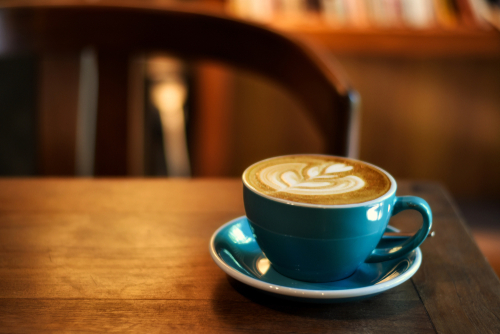Some research has indicated that coffee may be protective for mental health, which may be a surprise as we generally hear about how coffee and caffeine is often the bad guy when it comes to mental health:
-
- Have anxiety? Steer clear, it will make this worse (and some research indicates that this is true even at low doses of caffeine).
- Have insomnia? No caffeine after midday, or it will interfere with your sleep.
- Premenstrual symptoms? Cut it out altogether.
- Dysphoric Milk Ejection Reflex (i.e., breastfeeding symptoms): Again, cut out caffeine altogether.
And yet, many of us enjoy coffee, tea, and other caffeine products.
So here’s the good news: There are multiple systematic reviews with huge numbers of people (we’re talking hundreds of thousands) indicating that a moderate level of coffee (i.e., two to four cups per day) is linked to a lower risk of having a depressive episode. It’s an interesting finding, as having one coffee or more than five coffees per day offers no benefit – it’s all about the dose (i.e., how much coffee you have). The findings are similar when it comes to green tea, and a bit more varied when it comes to tea.
However, I don’t know about you, but if I had this much coffee per day (two to four cups), I would be dependent on coffee to function. So we are straight back to caffeine being the bad guy: have a “moderate” amount to minimise the risk of depression, and get addicted! Woohoo. (Although everybody has different thresholds for dependence on coffee.)
It’s also essential to qualify the research by saying the relationship between coffee and lessened risk of depression is an association, rather than cause and effect. As in, we have no idea if having two cups of coffee a day will actually prevent you from having depression. It might be that everyone in the research study having moderate amounts of coffee also had other protective factors against depression, such as great social support, an active lifestyle, a balanced diet, and more. So, take the results with a grain of salt.

